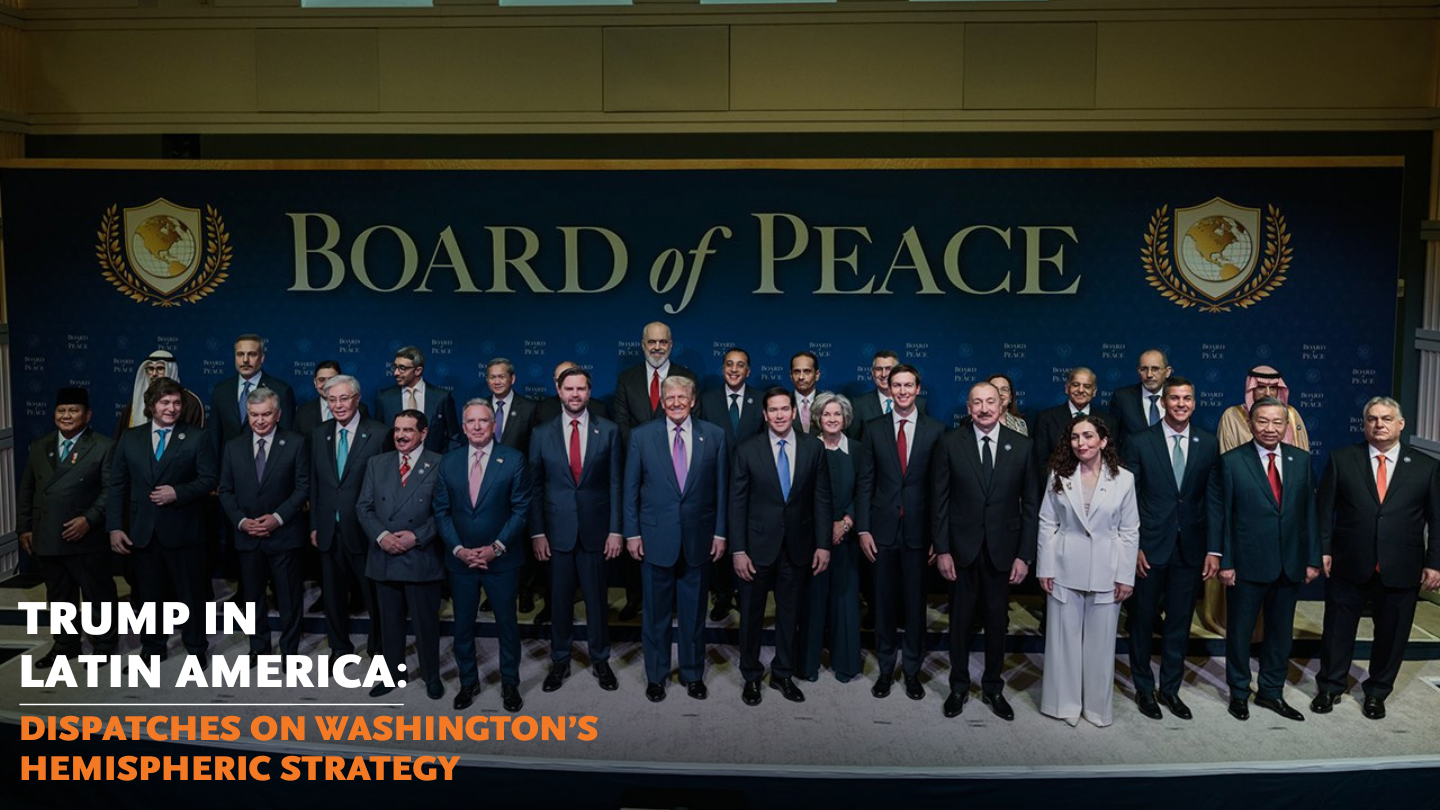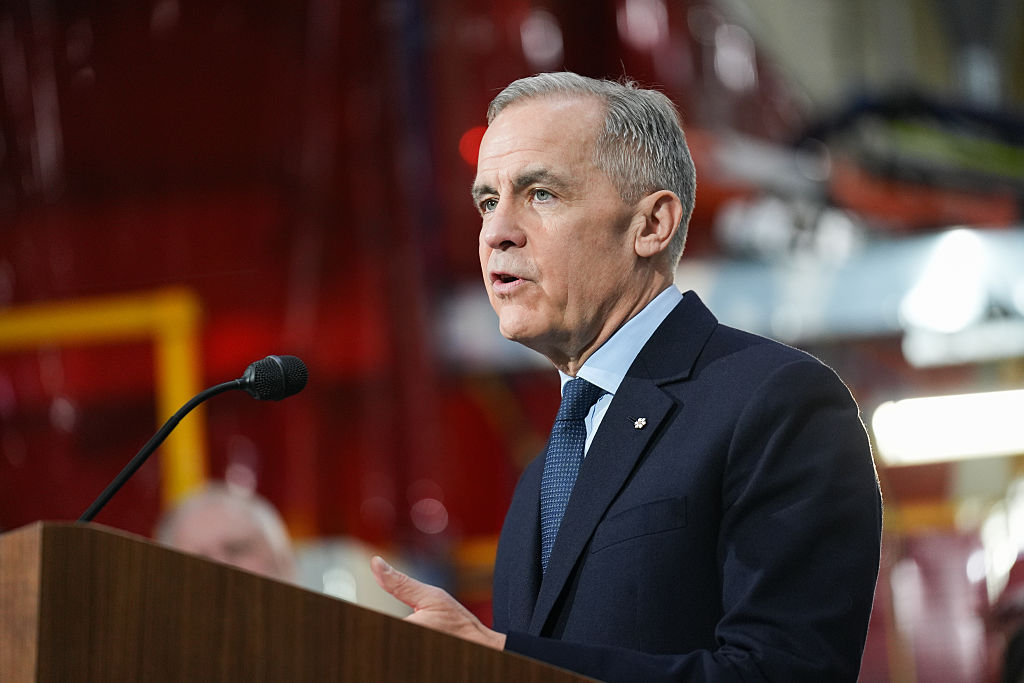Remarks: U.S. Secretary of State Hillary Clinton at the 39th Washington Conference
Remarks: U.S. Secretary of State Hillary Clinton at the 39th Washington Conference
Speaking at COA's 39th Washington Conference, U.S. Secretary of State Hillary Clinton recognized that democratic elections are now the norm in the Western Hemisphere and argued that the next step is to address social inequality.
Remarks by U.S. Secretary of State Hillary Clinton
at the 39th Washington Conference on May 13, 2009.
Thank you very much. Thank you. Well, it is an absolute delight to be here. I know it’s been a long day, but from my reports, it’s been a very productive day. I thank Bill and Susan and all of you who have made this meeting so successful. And I know you’ve heard from a lot of our Administration officials, both from here in the Department, obviously Tom Shannon and Jim Steinberg, and then throughout the government. So let me thank you for being part of this. As Bill said, I was in New York this morning in one of those iconic New York experiences, delivering the commencement address for NYU University from the field of the new Yankee Stadium. It does not get any better than that.
This gathering builds on the discussions that President Obama, and I, and other Administration officials have been having with our counterparts throughout the Americas for the past four months. We are very grateful for these opportunities.
And you’ve heard earlier from my colleagues about the importance that we place on the Western Hemisphere. We believe that we are all of the Americas, and as such, we are linked by history, geography, economics, culture, family roots, family ties, and a common future.
Today, our view is that our hemisphere is and can be the dynamic center of growth and opportunity for all of the people who live within it, and that together we can see a new future for our hemisphere that will give us the chance to improve the quality of life, raise the standard of living, deal with our ongoing security and law enforcement problems, while tackling together problems like energy, climate change, and so much else.
As Jim Steinberg said earlier, democratic elections are now the norm throughout our hemisphere, but the ballot box alone is not enough. This is something that we feel very strongly about, and it comes with our deepest commitment to democratic ideals, but our recognition that sustainable democracies do more than just have elections. So we have to join together in 21st century partnerships to build vibrant civil society, to demand accountability from democratic institutions, to insist on the rule of law, to help build independent and capable judicial systems, and respect for human rights.
We’ve made progress liberalizing trade and opening markets, but now we have to make sure that the benefits of economic growth reach all people. Income inequality is one of the great challenges facing the world, and you know well because you are all involved in the work of governments or NGOs or businesses or academia or other institutions throughout the hemisphere, that our hemisphere is not the poorest in the world, but it is the most unequal when it comes to economic opportunity. That is just simply unacceptable. And it really is beneath us. I mean, this is a hemisphere filled with some of the most competent, incredibly successful people ever on God’s earth, and we have to put our minds together to make sure that the benefits of the economic prosperity we want to see started again and spread are evenly distributed.
We need to provide people with the tools they need to fulfill their own God-given potential and empower citizens of every background to help build and participate in more equitable and just societies.
At the recently held Summit of the Americas, President Obama outlined ways in which the U.S. will engage with our partners in the region. We are not interested in rhetoric without results. We are committed to taking concrete steps to further and fulfill the summit’s agenda, and to build principled and pragmatic partnerships that move beyond “one size fits all” solutions that don’t reflect the diversity and breadth of our hemisphere. So we intend to be flexible and innovative to deliver material improvements to the lives of more people in more places.
But we know this is a shared responsibility. And it is not just a public responsibility. We think it is also a private sector and a civil society responsibility as well. Our work has just begun, and I am looking forward to becoming more deeply involved in the follow-up that we wish to have to the statement coming out of the summit.
I will be traveling to the region again later this month to attend the inauguration of the president-elect in El Salvador, as well as a Pathway to Prosperity ministerial in El Salvador, and to attend the OAS General Assembly in Honduras.
For our part, the United States has been engaging our neighbors, inter-American institutions, and the private sector to find collaborative and effective ways to move forward in areas of urgent concern. I really appreciate the leadership that the Government of Mexico showed in confronting a very serious challenge with the H1N1 flu virus and the cooperation that was shown throughout our hemisphere in support of Mexico, and also to take preventive measures ourselves.
We are working with New York City and the OAS to launch what we’re calling the Social Protection Network. It is modeled on successful programs in Brazil and Mexico and other countries that provide wider opportunities for education and better health.
USAID is working to establish partnerships to provide vocational opportunities for at-risk youth in a number of Caribbean countries.
The Treasury Department along with USAID and other agencies are continuing to develop a microfinance growth fund to boost available capital and increase opportunities for local entrepreneurship.
We are preparing for the Energy and Climate Partnership meeting in Lima in June, and working with several of our partners on innovative projects.
The State Department is leading our government-wide effort to address the issue of food security in our hemisphere and beyond.
We have requested an additional $320 million in the 2010 budget to support democratic governance in the Western Hemisphere. As President Obama has made clear, we look forward to the day when every country in the Americas, including Cuba, can participate in our hemispheric partnerships in a manner that is consistent with the principles of the Inter-American Democratic Charter.
And finally, let me reiterate that the United States will do its part to ensure that the benefits of economic growth and trade are broadly shared. We believe that the Pathways to Prosperity initiative is the kind of a strategic platform for expanding economic opportunity, promoting social justice, and generating healthy competition in order to advance real progress. So I am looking forward to meeting in El Salvador with other ministers to explore how we can take this to the next stage.
The challenges facing our hemisphere, like our world, are complex. But the opportunity for positive interdependence are absolutely unlimited. We have an unprecedented chance to cooperate, collaborate on behalf of common goals and objectives. You will have sustained engagement based on partnership and mutual respect from the State Department, from the White House, and from the Obama Administration. We are in this for the long haul, and we believe that we can meet the test of our times.
I told the graduates earlier today that they’re commencing on their adult life at a time of historic challenge. We know of the global economic crisis. We know of the threats of extremist ideologies, of pandemic disease. There’s so much that gives us pause. But this is a challenge we can meet. I have no doubt about that. I am optimistic, and I am absolutely convinced. But it won’t happen by our hoping it does. It won’t happen by our planning. It will happen because we act together. And we look for best practices and we honestly exchange views and we listen to each other, and then we determine that we will make progress. That is our vision and our hope, and we look forward to working with you to achieve it.
Thank you all very much.








